For Help Dial: (442)-265-1525
Or Call: 1-800-817-5292
For Help Dial:
(442)-265-1525
Or Call:
1-800-817-5292
For Urgent Behavioral Health Support Call:
1-800-817-5292 Available 24/7
Suicide & Crisis Hotline Dial 988
Imperial Valley Reverse 911
For Urgent Behavioral Health Support Call:
1-800-817-5292 Available 24/7
Suicide & Crisis Hotline
Dial 988
Imperial Valley Reverse 911
Psychiatry Residency Program
Bushra Ahmad, M.D., MPA. Program Director
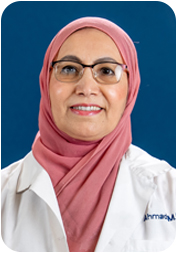 Medical Director, Imperial County Behavioral Health Services
Medical Director, Imperial County Behavioral Health Services
Board-Certified Adult and Addiction Psychiatrist
Dr. Bushra Ahmad is the Medical Director at Imperial County Behavioral Health Services with over 20 years of experience in psychiatry, addiction medicine, and public mental health. Board-certified in both adult psychiatry and addiction medicine, she leads countywide initiatives including jail-based services, youth and elder care, MAT programs, and workforce training. Dr. Ahmad is also active in medical education and global outreach through partnerships such as APPNA. Her work has earned recognition for leadership and service to underserved communities.
Henry Marquez, M.D. Associate Program Director
 Adult, Child & Adolescent Psychiatrist and Addiction Medicine Specialist, Imperial County Behavioral Health Services.
Adult, Child & Adolescent Psychiatrist and Addiction Medicine Specialist, Imperial County Behavioral Health Services.
Dr. Henry Marquez-Castro is a triple board-certified psychiatrist with specialized training in child & adolescent psychiatry and addiction medicine. He is also a certified Parenting Coach, committed to empowering families through evidence-based approaches.
He currently serves at Imperial County Behavioral Health Services in the Children, Youth, and Young Adult Department. His diverse clinical experience includes meaningful collaboration with families, infants, minority communities, and low-income populations. Dr. Marquez-Castro has particular interests in global mental health, infant-parent mental health, autism spectrum disorder, and substance use disorders.
He completed his psychiatry residency at Tufts University and his fellowship at Baylor College of Medicine. Dr. Marquez-Castro is also an experienced educator and international speaker. Fluent in English, Spanish, and Portuguese, he is dedicated to serving multicultural and underserved populations.
Core Faculty

Rakesh Bhansali, M.D.
Consultant Psychiatrist, Imperial County Behavioral Health Services
Board-Certified in Psychiatry and Addiction Medicine
Dr. Rakesh Bhansali is a board-certified psychiatrist and addiction medicine specialist with over a decade of experience serving individuals with chronic mental illness. Since 2012, he has provided comprehensive psychiatric care at Imperial County Behavioral Health Services, including medication management, telepsychiatry, and conservatorship evaluations. He completed his psychiatry residency at the University of Wisconsin and holds an additional diploma in Psychological Medicine from KEM Hospital in Mumbai. Dr. Bhansali is especially interested in the neurobiology and psychopharmacology of schizophrenia and is committed to improving mental health access in underserved communities.

Belen Davila, M.D.
Staff Psychiatrist, Imperial County Behavioral Health Services
Board-Certified in Psychiatry and Addiction Medicine
Dr. Belen Davila is a board-certified psychiatrist and addiction medicine specialist serving Imperial County Behavioral Health Services since 2017. She provides psychiatric care across the lifespan—from children to older adults—through in-office and telehealth services. Her areas of focus include youth and young adult psychiatry, substance use treatment (including MAT), crisis evaluation, and conservatorship assessments. Dr. Davila completed her residency at the University of Arizona-South Campus and earned her medical degree from Universidad Autonoma de Guadalajara. She is bilingual in English and Spanish and dedicated to community-based mental health care.

Aaron Meyer, M.D.
Health Sciences Assistant Clinical Professor of Psychiatry, UC San Diego
Board-Certified in Psychiatry and Family Medicine
Dr. Aaron Meyer is a dual board-certified psychiatrist and family physician at UC San Diego, where he serves as a Health Sciences Assistant Clinical Professor and a leader in consultation-liaison psychiatry. He has extensive clinical experience across emergency, correctional, inpatient, and outpatient settings, and maintains active roles in community mental health with organizations such as Family Health Centers of San Diego and Innercare. Dr. Meyer completed a combined Family Medicine/Psychiatry residency at UCSD and is recognized for his leadership, teaching, and policy work across California. His professional focus includes co-occurring disorders, conservatorship reform, and improving care for underserved and high-utilizer populations.
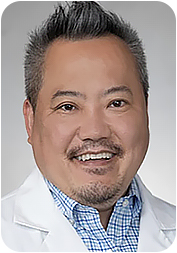
Steve Koh, M.D., MBA, MPH.
Chief, General Psychiatry Division, UC San Diego
Director, Community Psychiatry Program
Dr. Steve Koh is a triple-board-certified psychiatrist and a national leader in academic and community psychiatry. He serves as Chief of the General Psychiatry Division and Director of the Community Psychiatry Program at UC San Diego, where he leads training, clinical service, and policy initiatives across diverse systems of care. With advanced degrees in public health and business from Johns Hopkins, Dr. Koh has led numerous interdisciplinary programs focused on workforce development, geriatric mental health, telepsychiatry, and culturally responsive care. He is a Distinguished Fellow of the American Psychiatric Association and an influential voice in mental health policy and education across California and beyond.
Faculty
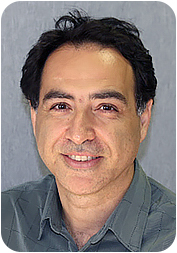
Morteza Rahmani, M.D.
Staff Psychiatrist, Imperial County Behavioral Health Services
Specialist in Adult and Geriatric Psychiatry
Dr. Morteza Rahmani is a board-certified psychiatrist with advanced training in both adult and geriatric psychiatry. Since 2012, he has served as an attending psychiatrist at Imperial County Behavioral Health Services, providing care across adult outpatient and youth and young adult (YAYA) programs. He completed his residency at SUNY Downstate and fellowships at Beth Israel Medical Center and the Institute of Psychoanalytic Education (NYU). Dr. Rahmani has participated in multiple research projects and public mental health initiatives, including international volunteer service and contributions to dementia and cognitive disorder research.

Nancy Downs, M.D.
HS Clinical Professor of Psychiatry, UC San Diego
Distinguished Fellow, American Psychiatric Association
Dr. Nancy Swerdlow Downs is a distinguished psychiatrist and educator with over three decades of academic and clinical experience. A leader in college mental health and suicide prevention, she founded the UC San Diego College Mental Health Program and has played key roles in pioneering integrated care models that serve both medical professionals and students. As a clinical professor, she mentors psychiatry residents and fellows, and her scholarly work has led to numerous peer-reviewed publications, program innovations, and national presentations. Dr. Downs is deeply committed to collaborative care, medical education, and improving mental health outcomes in diverse populations.
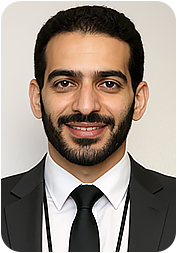
Mohamad Khafaja, M.D.
Associate Professor of Psychiatry, UC San Diego
Medical Director, Inpatient Psychiatry Unit
Dr. Mohamad Khafaja is a board-certified psychiatrist and geriatric psychiatry specialist who serves as Associate Professor of Psychiatry and Medical Director of the Inpatient Psychiatry Unit at UC San Diego. With prior leadership roles at the University of New Mexico, including Vice Chair for Inpatient and Emergency Services and Director of the Geriatric Psychiatry Fellowship, Dr. Khafaja brings extensive clinical and academic expertise to his work. He is also a dedicated educator and researcher with numerous publications in neuropsychiatry, ECT, and psychopharmacology. He holds an Executive MBA and is committed to advancing patient care through integrated teaching, supervision, and leadership.

Hilary Gould, PhD.
Health Sciences Assistant Clinical Professor of Psychiatry, UC San Diego
Research & Projects Director, UCSD Community Psychiatry Program
Dr. Hilary Gould is a licensed psychologist and assistant clinical professor in the Department of Psychiatry at UC San Diego, where she also serves as Research and Projects Director for the Community Psychiatry Program. Her expertise includes autism spectrum disorders, implementation science, and psychiatric workforce development. Dr. Gould has led and co-authored numerous peer-reviewed publications and book chapters, including contributions to Kaplan and Sadock’s Comprehensive Textbook of Psychiatry. She is also co-editor of Diversity in Action: Case Studies in Cultural Psychiatry. A recipient of major research grants and faculty awards, Dr. Gould is dedicated to advancing mental health equity through clinical care, research, and education.
Faculty Other Sites
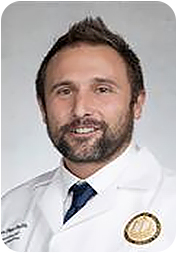
Andrew LaFree, M.D. – ECRMC
Assistant Clinical Professor, UC San Diego
Medical Director, Emergency Department, El Centro Regional Medical Center
Dr. Andrew LaFree is a board-certified emergency physician and academic leader with a strong commitment to border and rural health. He serves as Medical Director of the Emergency Department at El Centro Regional Medical Center and Assistant Clinical Professor at UC San Diego. Dr. LaFree has led numerous clinical and educational initiatives, including residency teaching, grant-funded research, and public health responses to COVID-19. He is a published author, medical education innovator, and recipient of multiple state and national awards. His work bridges frontline care, academic medicine, and health systems leadership in underserved communities.

Allan Wu, M.D. – Innercare
Chief Medical Officer, Innercare
Clinical Adjunct Faculty, UC San Diego
Dr. Allan Wu is a board-certified obstetrician-gynecologist and surgeon with over two decades of clinical and leadership experience. He currently serves as Chief Medical Officer of Innercare and Health Commissioner for Imperial County’s Local Health Authority. Dr. Wu holds faculty appointments at UC San Diego and is recognized for his work in women’s health, minimally invasive gynecology, and health systems leadership. Trained at prestigious institutions including UCLA, Bourn Hall Clinic (UK), and TriHealth Bethesda, his background spans academic teaching, surgical research, and rural health innovation. Dr. Wu is a Fellow of both the American College of Obstetricians and Gynecologists and the American College of Surgeons.
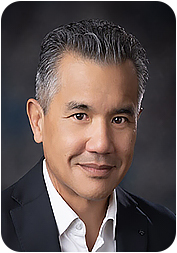
Bernardo Ng, M.D. – Sun Valley Behavioral Health Center
Medical Director, Sun Valley Behavioral and Research Centers
Clinical Assistant Professor of Psychiatry, UC San Diego
Dr. Bernardo Ng is a board-certified psychiatrist with an extensive background in clinical care, academic teaching, and international research. He is the Medical Director of Sun Valley Behavioral and Research Centers and serves as Clinical Assistant Professor of Psychiatry at UC San Diego. Dr. Ng has led and participated in numerous clinical trials and is widely published in both U.S. and Latin American journals. With a strong commitment to cross-border mental health initiatives, he also presides over the Asociación Psiquiátrica Mexicana and plays a key role in binational psychiatric education and collaboration.
Location/Sites
Imperial County Behavioral Health Services (ICBHS)

ICBHS – Adult and Older Adult Services
2695 South 4th Street, El Centro, CA 92243
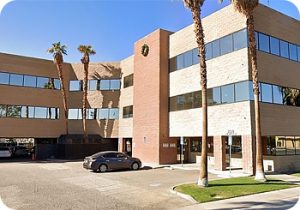
ICBHS – Mental Health Triage & Services
202 North 8th Street, El Centro, CA 92243

ICBHS – Substance Use Disorder Treatment
2695 South 4th Street, El Centro, CA 92243
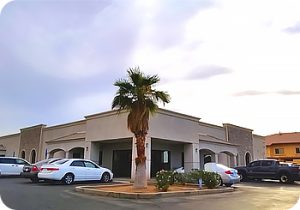
ICBHS – Children & Adolescent Outpatient Services
651 Wake Avenue, El Centro, CA 92243
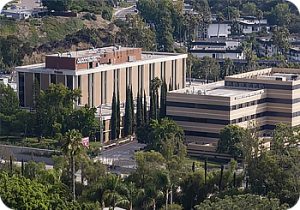
UCSD Health – East Campus Medical Center
6655 Alvarado Road, San Diego, CA 92120
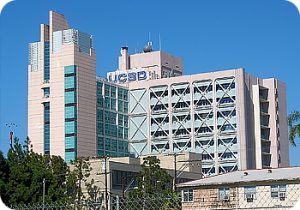
UCSD Health – Hillcrest Medical Center
200 West Arbor Drive, San Diego, CA 92103
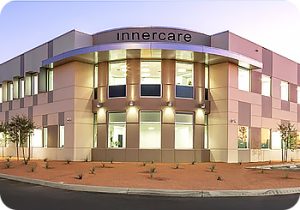
Imperial County Participant Sites
Innercare
852 East Danenberg Drive, El Centro, CA 92243
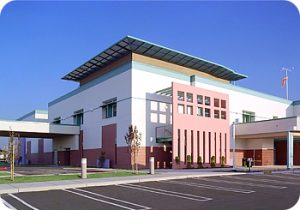
El Centro Regional Medical Center (ICBHS)
1415 Ross Ave, El Centro, CA 92243

Sun Valley Behavioral Medical Center
Marshall Avenue, Imperial, CA 92251
How to Contact
Phone 442-265-1656
Email: imperialcountyresidencyprogram@co.imperial.ca.us
How to apply- ERAS Application. https://myeras.aamc.org/myeras-web/#/landing
Please see video for Imperial County
PGY-1
- Rotations: Family Medicine, Mental Health Triage, Addiction Psychiatry, Emergency Medicine, Inpatient Psychiatry, Consultation-Liaison Psychiatry, and Neurology.
- Includes a longitudinal Academic Half Day.
PGY-2
- Rotations: Inpatient Psychiatry, Consultation-Liaison Psychiatry, Neurology, Geriatric Psychiatry, Adult Psychiatry Services, Mental Health Triage, Addiction Psychiatry, Child and Adolescent Psychiatry.
- Gradual shift to 100% outpatient settings in later blocks.
PGY-3
Longitudinal outpatient experiences:
- Child and Adolescent Psychiatry (CAP)
- Geriatric Psychiatry
- Addiction Psychiatry
- Anxiety and Depression
- Psychotherapy
- Full-Service Partnership
PGY-4
Administrative leadership opportunities as “Chief”
- Anxiety and Depression
- Mental Health Triage
- Full-Service Partnership
- Addiction
Advanced training through self-selected electives
- Interventional Psychiatry
- Geriatric Psychiatry
- Research
- Child and Adolescent Psychiatry
Didactic: Pending. *Available Mid-February 2026
Compensation, Benefits, and Liability.
2024–2025 Academic Year Compensation & Salary Scale
The ICBHS Psychiatry Residency Program adheres to competitive salary guidelines aligned with public sector residency funding and the Medi-Cal Behavioral Health Residency Training Program’s support.
Pgy1 Salary: $95,771.55
Pgy2 Salary: $98,644.70
Pgy3 Salary: $101,604.04
Pgy4 Salary: $104,652.16
Benefits
“Competitive salary and benefits package adhering to ACGME standards.”
Residents in the ICBHS program receive a comprehensive benefits package designed to support their well-being and professional growth:
- Licensure & Exam Support: Reimbursement for USMLE Step 3, California Postgraduate Training License (PTL), and Full Medical License fees.
- Health Coverage: Medical, dental, and vision insurance for residents and their dependents at no additional cost.
- Liability Coverage: Malpractice and disability insurance are fully covered by the sponsoring agency.
- Paid Leave: 20 Days of paid vacation each year, with additional paid educational days (Adhering to ACGME requirements).
- Uniforms:
- White lab coats
- Library Access: Online and remote access to educational and research resources
- Rental Coverage: While the students are attending their rotations in San Diego, rent will be covered, or housing will be provided.
Educational Support – The program offers structured financial support for professional development and scholarly activity throughout the four years of training.
Parking – Free on-site parking is available for physicians at the hospital and clinic.
- Annual retreat
- Year-Round Wellness Programming
- Department Activities
- Christmas Party
- Medical/Osteopathic School Transcript
- Dean’s Letter
- Personal Statement
- Curriculum Vitae
- Three Letters of Recommendation
- USLME Step 1 and Step 2 Transcript (or COMLEX Level I & II)
- ECFMG Certification (if applicable)
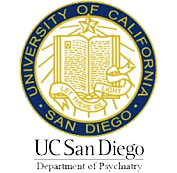
Contact Us
For inquiries, please call
442-265-1525 or
1-800-817-5292
Emergency Services
IC Behavioral Health Crisis
1-800-817-5292
Center For Family Solutions
(760) 353-8530
Child Protective Services
(760) 337-7500
SURE 24-Hour Helpline
(760) 352-7873
Rape Crisis Center
(760) 352-7273
National Suicide
Prevention Lifeline
1 (800) 273-8255
 Imperial County Behavioral Health Services provides equal care to all individuals seeking and receiving services, regardless of: Age, Race, Ethnicity, Physical Ability/Attributes, Religion, Sexual Orientation, Gender Identity or Gender Expression.
Imperial County Behavioral Health Services provides equal care to all individuals seeking and receiving services, regardless of: Age, Race, Ethnicity, Physical Ability/Attributes, Religion, Sexual Orientation, Gender Identity or Gender Expression.
Imperial County Behavioral Health Services Administrative Office
202 N. 8th Street, El Centro, CA 92243
(442) 265-1525 or 1-800-817-5292
Another Glo’ing Website by:
Inerglo Creative
